Executive coaching versus leadership coaching – can you get away with just one of them? And if not, how do you know which employees to send to an executive coach and which are better off in a leadership development program? You may be surprised to learn how much the answer depends on your particular organizational culture.
Comparing Executive Coaching and Leadership Coaching
Part of the confusion surrounding executive and leadership coaching is the idea that all executives are leaders. This is generally true, but the opposite is not – leaders can also be present outside of the executive team. With this in mind, let’s define the two concepts.
Executive Coaching
Executive coaching is a form of business coaching that uses the services of a professional workplace coach who specializes in executive-level employees. The goal of the coaching engagement is to improve their current performance and/or prepare them for a new role. Although this is essentially the same goal as any workplace coach, an executive coach faces many challenges working with executives who:
- Have a very high level of skill, but a coach somehow needs to improve it
- Face severe time constraints; the coach needs to function within those limits while still enabling changes in the client’s performance levels by, for instance, enhancing their emotional intelligence
- Tend to have high expectations and little patience
- Expect quick and noticeable results (while also having the ability to immediately end the engagement if they are not satisfied)
Leadership Coaching
“Leaders” can be defined as those who are in charge of people, but also those who take initiative, help others, and have the courage to speak up when something is wrong. In this sense, you will find leaders at any level of a company. The goal of leadership coaching is to nurture these abilities in the employees who have a talent for them. However, because a leadership coach (strictly speaking) does not specialize in executives, they don’t face the challenges listed above.
Are Executive and Leadership Coaching More About Style?
If you compare the skills taught in an executive coaching course to those in a leadership coaching course, you will notice plenty of overlap. Examples include communication, strategic thinking, and self-awareness. Obviously, a talented executive needs to lead the people whom they manage in the organization. So, in terms of skill types, an executive coach and a leadership coach might be talking about the same thing.
The difference is in how they approach the client. Perhaps the biggest factor that separates these two fields is that an executive coach is dealing with a person who, as stated, is at the top of their game. It is not likely that the coach knows more about the business than the executive. In fact, many top leaders get professional advice from other top leaders as part of a mentoring relationship. Famous examples include Warren Buffet mentoring Bill Gates and Steve Jobs mentoring Mark Zuckerberg.
So a great executive coach takes another route – they enable the client to find their own path to improvement. The job of the coach is to listen, ask questions, challenge, recommend, and oversee. They provide a sounding board for an executive’s ideas about what they need to change, and an objective opinion for the resulting plan and actions.
Executive Coaching for Excellence
Executive coaching was one of the original areas of business coaching. Due to the high value of the decisions made by an organization’s top people, companies were willing to invest the funds in professional development courses that leveraged the close personal attention of a coach.
This remains an L&D mainstay. For companies with traditional hierarchies and mindsets, executive coaching allows those with a very high level of talent to unlock even more potential.
Leaning Towards Leadership Skills
The workplace has changed a lot over the past decade. The trend away from “positional leadership” started a long time ago. But giving people authority based more on their role than on their place in the hierarchy is an even more important concept today for those companies that have made this idea part of their organizational culture. Here are some of the trends that are creating more of a drive towards leadership skills development:
Newer Generations
To a greater degree than older people, younger generations see learning and development as critical. Having grown up during an age of constant technological change, they are accustomed to frequently learning new things. This enables them to acquire the skills needed for leadership roles.
Growth Mindset
Organizations that believe in the Growth Mindset understand that the only limit to an employee’s skills is their own effort. To this end, companies can support motivated workers with continuous development programs. Even for those employees who are not on a leadership track, leadership coaching can bring out the best in them.
Flat Hierarchies
Arising from the increased importance of knowledge workers, many companies (including Meta and Alphabet) are reducing their ranks of middle managers and creating a flat hierarchy. This allows more employees direct access to the top people in their companies and more influence over their individual tasks and on the activities of the company.
The overall effect (and intention) of a flat hierarchy is to give employees more decision-making power, which speeds up the pace of innovation and change. “Decision-making” depends on many other skill elements, like communication and strategic thinking, which fall under the title of “leadership skills”.
These soft skills, and more, are best developed by leadership coaches. Their personalized approach of guiding employees towards changing fundamental behavior is ideal for building leaders at all levels. At the same time, because these employees aren’t executives, the coach doesn’t need to deal with all of the complications that are part of an executive coaching engagement.
Whether Executive or Leadership Coaching, Growthspace Has Got You
Does your organization need executive coaching, leadership coaching, or both? Regardless of your L&D needs, Growthspace has the technology to support your goals. Our skills mastery platform is designed to launch, manage, and measure 1:1 coaching and mentoring, team coaching, and various other L&D initiatives, thereby driving business KPIs through human-to-human development programs.
By leveraging the world’s most robust talent development dataset and our network of over 2,000 global experts, Growthspace helps hundreds of customers, including Siemens, Microsoft, EY, Deloitte, J&J, ZoomInfo, and the U.S. Government. Such clients have improved business performance by 5%+, lowered attrition by 10%, and increased promotable base by 30%. This level of results ensures that L&D serves mission-critical goals.
Ready to turn insights into impact?


















